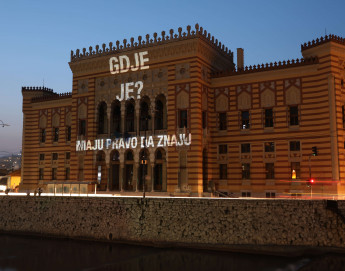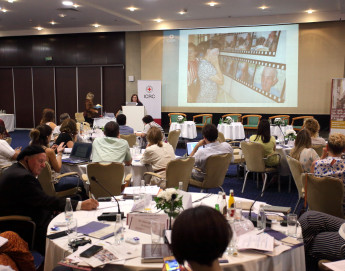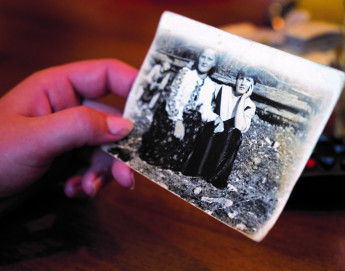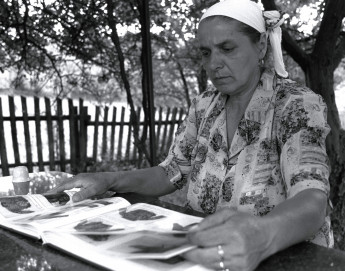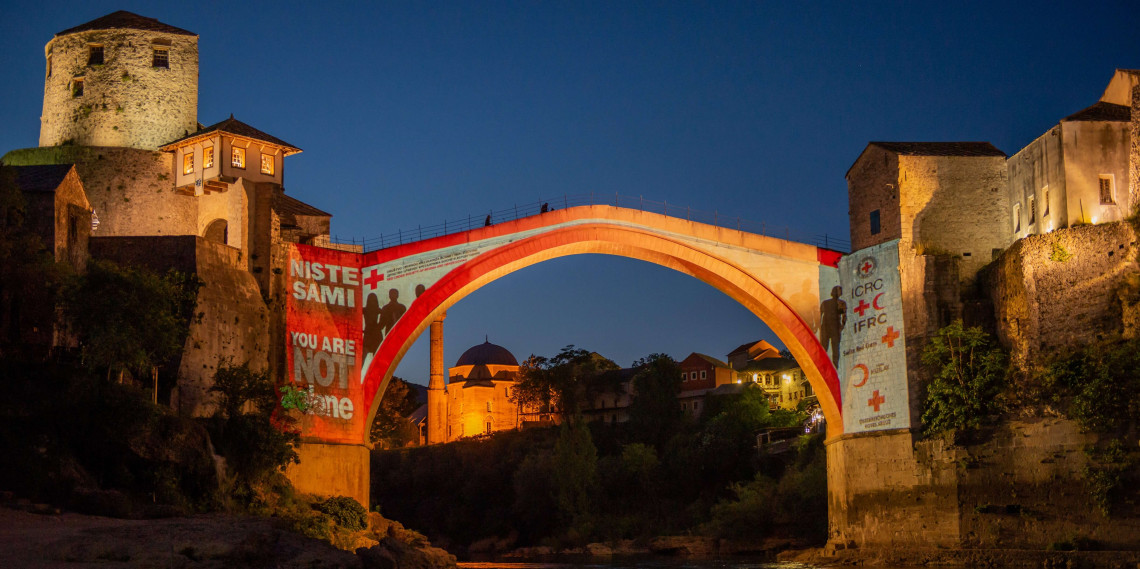
"You are not alone": The Movement’s response to the COVID-19 pandemic in Bosnia-Herzegovina

The Red Cross Society of Bosnia-Herzegovina, supported by other Movement partners such as the ICRC, the IFRC, Swiss, Turkish, Italian, Austrian and other National Societies, immediately enrolled a coordinated action to respond to the pandemic and its consequences.
In addition to supporting the overall Red Cross response for the general population, the ICRC has also provided assistance tailored to the additional needs of its usual clients and partners in the country, such as families of missing persons, mine victims, forensic institutes, or prisons.
First-responders during the lockdown
In these extraordinary circumstances, we had the opportunity to help people who are vulnerable or who are in the high-risk category, such as people older than 65. They were unable to go out, so we paid their bills, brought them pensions, provided food, medicine and all other necessities.
The first wave of the pandemic resulted in a strict and two-month-long lockdown to prevent the spread of the virus. The authorities promptly imposed long curfews, while people over 65 were not allowed to leave their homes at all.
To provide assistance to this and other vulnerable populations, the Red Cross has been included into crisis groups on all administrative levels, while more than 2,000 volunteers and staff have been immediately mobilized to provide assistance in their communities on a daily basis.
From March to May 2020 alone, in the two months of the statewide lockdown, the Red Cross Society with the support of other Movement partners has amongst other things:
- distributed over 100,000 protectives facemasks, over 23,000 food and hygiene parcels, and 44,000 information leaflets about preventive measures against the pandemic,
- provided almost 10,000 services to people older than 65, such as visits to pharmacies and groceries or bill payments,
- had over 1,000 psychosocial support interventions on their hotlines,
- disinfected 675 public areas and transported 235 potentially infected people to hospitals,
- delivered over 500 field beds and tents to local authorities in 14 municipalities and set up over 50 triage and quarantine tents.

More than 2,000 Red Cross volunteers and staff visited and helped over 30,000 people during the lockdown
The prompt humanitarian response during the lockdown confirmed the Movement's ability to react in a quick and coordinated manner, while the Red Cross Society of Bosnia-Herzegovina again displayed high preparedness to fulfill its auxiliary role to the authorities.
World Red Cross/Red Crescent Day under COVID-19 conditions
Our most important resource are our volunteers and the greatest value of the Red Cross is voluntary work.
The Movement's coordinated response to the pandemic would not be possible without the incredible work done by the volunteers in the field. To express gratitude and appreciation for their selfless commitment, the ICRC delegation in Bosnia-Herzegovina marked the World Red Cross and Red Crescent Day on 8 May through visual projections on the Academy of Fine Arts in Sarajevo, the City Hall in Bijeljina, and the iconic Old Bridge in Mostar in colors of our international movement.
Visual projections on iconic buildings during the World Red Cross and Red Crescent Day
The visual projections contained the message "You are not alone" along with logos of the Movement partners involved in responding to the pandemic in Bosnia-Herzegovina. The message was directed both to citizens of the country that they are not left alone during the lockdown and to the Red Cross volunteers that they have the full support of the Movement in their enduring efforts under extraordinary conditions.
The campaign also aimed to raise awareness about the Red Cross services available during the pandemic, and to encourage citizens to reach out with their needs to the local Red Cross branches.
Support to families of missing persons
Families of over 7,000 people still missing from the war are among ICRC's closest partners in Bosnia-Herzegovina and they have been particularly affected by COVID-19. The existing uncertainty caused by the disappearance of their loved ones has now been compounded by the fear of the pandemic.
The ICRC contacted more than 40 family associations of missing persons to check on their well-being during the lockdown. A total of 1,777 relatives of the missing over 65 years old have been identified from the ICRC's records as particularly vulnerable due to the pandemic and its economic consequences.
Red Cross volunteers have directly contacted over 1,000 family members, whereby 800 expressed a need for assistance, such as food or hygiene parcels or other Red Cross services. Adequate support was then secured by the ICRC and delivered by volunteers.

Red Cross volunteers distributed material assistance secured by the ICRC to 800 most vulnerable relatives of missing persons.
Another aspect of the pandemic that had a significant influence on the lives of the families was that the search for missing people was interrupted during the lockdown and later significantly affected by other COVID-19 restrictions.
In November and December 2020, the ICRC conducted a series of psychosocial support seminars for representatives of over 30 family associations, to address this additional burden. Similar workshops were conducted for 20 field investigators and staff of the Missing Persons Institute, focusing on the impact of the pandemic on their daily work and aiming to facilitate their communication with the families of missing persons.
Support to most vulnerable mine victims
In the past 25 years since the war in Bosnia-Herzegovina ended, more than 1,700 civilians became victims of landmines of which 617 died. An estimated 79,000 landmines and unexploded ordnance still cover almost 2% of state territory, directly threatening over half a million people (about 15% of the population) are directly affected by landmines and UXO.
With joint support of the Swiss Red Cross and the ICRC, the Red Cross Society of Bosnia-Herzegovina provided direct assistance to mine victims most affected by the economic consequences of the ongoing pandemic. Red Cross mine awareness instructors have identified 124 most vulnerable mine victims across the country, mostly living in remote and rural areas. The cash allowance provided in line with the Movement's standards aimed to address their most urgent needs caused by the pandemic.
Support to forensic institutes and prisons
We do not do autopsies of people infected with coronavirus in Sarajevo. We do not have the conditions, the facilities, the equipment. There is nothing.
To increase the safety standards for forensic practitioners during the pandemic, the ICRC has purchased 1,350 heavy-duty body bags for public health facilities and provided the most urgent personal protective equipment items to five forensic medicine institutions in Bosnia-Herzegovina. In addition, the ICRC provided its guidance and advice on the management of the dead who died of the COVID-19 virus.
By the end of 2020, the Forensic Institute of the Medical Faculty at the Sarajevo University was refurbished and fully equipped with ICRC's support. The new autopsy room will not only contribute to forensic activities related to missing persons but also enable autopsies of people deceased from the pandemic, which was not possible earlier due to lack of proper technical equipment.

Protective items, disinfectants, phone cards and guidance to prevent the spread of the pandemic among detainees was delivered to eleven prisons, like here in Bihać
In the framework of its support to places of detention, the ICRC has provided 20,000 protective masks and pairs of gloves, 750 liters of disinfectants and 300 phone cards for eleven prisons. The phone cards were provided to facilitate contacts of detainees to their relatives in times when family visits were suspended due to the pandemic. The ICRC also shared with the prisons detailed recommendations for preventing and managing the spread of the pandemic in detention facilities.
For more information, please contact:
Marko Matovic, ICRC Bosnia and Herzegovina
mmatovic@icrc.org
+387 66 604 205

